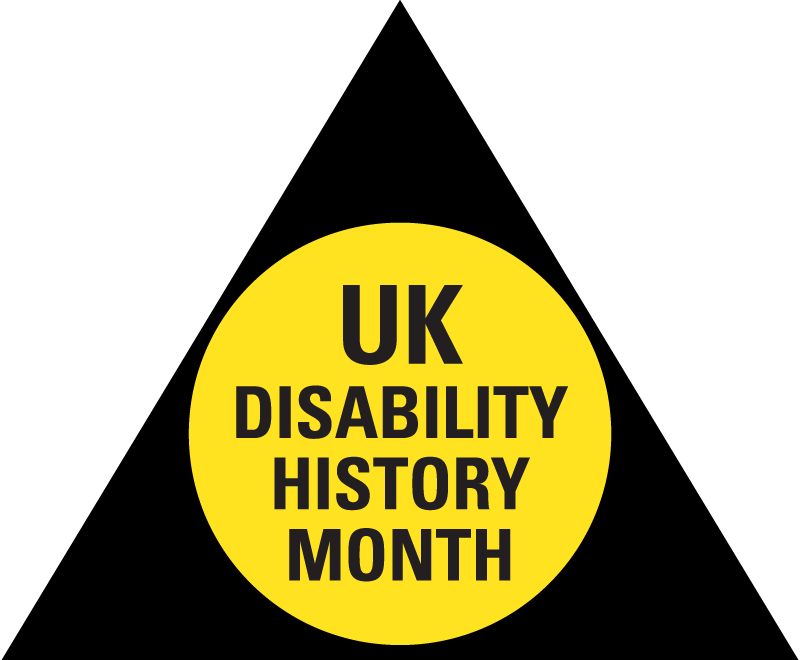A 8 Resource Sheet: The origin of negative words associated with disability
Afflicted This implies that some higher being has cast a person down (‘affligere’ is Latin for to knock down, to weaken), or is causing them pain or suffering.
Cripple The word comes from Old English crypel or creopel, both related to the verb ‘to creep’. These, in turn, come from old (Middle) German ‘kripple’ meaning to be without power. The word is extremely offensive.
Dumb or Dumbo a) Not to be able to speak. b) This has come to be seen as negative from the days when profoundly deaf people were thought of as stupid because non-deaf people did not understand their communication systems.
Dwarf Through folklore and common usage, has negative connotations. Use short people or short stature.
Feeble-minded The word feeble comes from old French meaning ‘lacking strength’ and, before that, from Latin flebilis, which meant ‘to be lamented’. Its meaning was formalised in the Mental Deficiency Act 1913, indicating not an extremely pronounced mental deficiency, but one still requiring care, supervision and control.
Handicapped Having an imposed disadvantage. The word may have several origins:
a) from horse races round the streets of Italian City States, such as Sienna, where the best riders had to ride one-handed, holding their hat in their other hand to make the race more equal.
b) by association with penitent sinners (often disabled people) in many parts of Europe who were forced into begging to survive and had to go up to people ‘cap in hand’.
c) from a 17th century game called ‘cap i’ hand’ in which players showed they accepted or rejected a disputed object’s valuation by bringing their hands either full or empty out of a cap in which forfeit money had been placed. This practice was also used in the 18th century to show whether people agreed to a horse carrying extra weight in a race (i.e. deliberately giving it a disadvantage).
Idiot The word dates from the 13th century and comes from the Latin word idiota, meaning ‘ignorant person’. Again, it featured in the Mental Deficiency Act 1913 (see Feebleminded), where it denoted someone who was so mentally deficient that they should be detained for the whole of their lives.
Imbecile This word has been around since the 16th century and comes from the Latin, imbecillus, meaning ‘feeble’ (it literally meant ‘without support’ and was originally used mainly in a physical sense). It was similarly defined in the
Mental Deficiency Act, as someone incapable of managing their own affairs.
Invalid Literally means not valid, from Latin ‘invalidus’. In the 17th century it came to have a specific meaning, when referring to people, as infirm, or disabled.
Mental, nutter, mad or crazy
All these are informal (slang) and offensive words for people with mental health issues. One in four people have a major bout of mental distress or become mental health system users. The vast majority are not dangerous.
Mentally handicapped In the UK over 200,000 people with learning difficulty were locked away in Mental Handicap Hospitals because tests showed they had low Intelligence Quotients (IQ). These tests have since been shown to be culturally biased and only to measure one small part of how the brain works. People with learning difficulties have chosen the name “people with learning difficulties” for themselves because they think that, through education, which they have largely been denied, they can improve their situation.
Mong/Mongolian Langdon Down was a doctor who worked at the London Hospital in Whitechapel in the 1860s. He noticed that around 1 in 800 babies were born with pronounced different features and capabilities. Their features reminded him of the Mongolian people’s. He postulated that there was a hierarchy of races (in descending order) – European, Asian, African and Mongols. Each was genetically inferior to the group above them. This was a racist theory. People with Down’s Syndrome find it extremely offensive.
People with disabilities This phrase assumes that the person has the disability.
Under social model thinking, the person has an impairment and is disabled by oppressive barriers of attitude, structures and environments in society. ‘Disabled people’ is more acceptable. A disabled personis anyone with a long-term impairment, who is oppressed and discriminated against because of these barriers.
Raspberry ripple Cockney rhyming slang for ‘cripple’, and offensive.
Retard Still in common use in the USA for people with learning difficulty; from retarded or held back in development – offensive. On October 5, 2010, U.S. President Barack Obama officially signed bill S. 2781 into federal law. Rosa’s Law removes the terms “mental retardation” and “mentally retarded” from federal health, education and labor policy and replaces them with people first language “individual with an intellectual disability” and “intellectual disability.
Spazz, spazzie or spastic People with cerebral palsy are subject to muscle spasms or spasticity. These offensive words are sometimes used in reference to this. People with this impairment wish to be known as people with cerebral palsy or disabled people
The blind; The deaf; The disabled To call any group of people ‘the’ anything is to dehumanise them. Use blind people, deaf people or disabled people.
Victim or sufferer Disabled people are not victims of their impairment because this implies they are consciously singled out for punishment by God or a higher being. Similarly, the word sufferer can imply someone upon whom something has been imposed as a punishment by a deity.
Wheelchair-bound Wheelchair users see their wheelchair as a means of mobility and freedom, not something that restricts them, apart from problems with lack of access.
